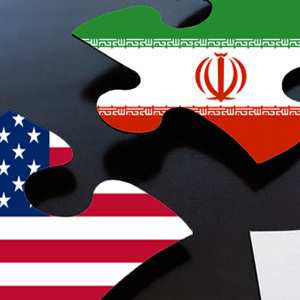International Consensus the Key U.S. Objective

For the first time, a key U.S. document, the Nuclear Posture Review (NPR) directly refers to Iran. A nuclear Iran is now officially a serious concern for the Americans.
Question: What is behind the timing of the release of the new U.S. document, the Nuclear Posture Review? Answer: Pressuring Iran to the extreme. By announcing its new nuclear strategy, the United States is trying to arrive at an international consensus on nuclear debates—to corner Iran and persuade, if not force, this country into modifying its allegedly non-peaceful nuclear program.
But there is more to the document: it can disarm Chinese and Russian excuses to not whole-heartedly join the anti-Iran alliance. While President Hu Jintao of China accepted the U.S. invitation to the recent Nuclear Security Summit in Washington, Tehran is not even sure that the Chinese Foreign Minister will attend its competing summit, the Nuclear Disarmament Conference in Tehran on April 17th. Clear signs are that the United States’ new nuclear strategy has been effective, paving the way for an international consensus against Iran
. It was always apparent that sooner or later the UN Security Council would pass another resolution against Iran, but the struggle with Iran’s nuclear issue needed a warm-up. To set the stage for another U.N. sanction resolution against Iran, the best move Washington could make was exactly the nuclear guarantee it promised to rivals China and Russia via the Nuclear Posture Review. America’s new nuclear strategy patently underlines the reduction of its nuclear warheads and the non-use of nuclear weapons against their friends.
However, the document reserves the right of the U.S. to deploy those weapons against North Korea or Iran—“outlier” states as President Obama called them, or states that are in non-compliance with the Non-Proliferation Treaty (NPT) according to the U.S., but not necessarily the International Atomic Energy Agency (IAEA)—should circumstances demand it. The nuclear document, despite discomfort with an American first-use option against two nations, is acceptable as a security guarantee for Beijing and Moscow, and ultimately facilitates their disengagement from Tehran.
Some observers may believe U.S. efforts to stop Iran’s nuclear program have failed, but the salient point is that for the United States, the most important issue at this time may not necessarily be the imposition of new sanctions, rather, it is succeeding in creating an international consensus against Iran. Years have now passed since America turned Iran’s nuclear program into a global concern, but they have not yet managed to achieve the unanimous global voice required to put Iran under intense pressure.
International consensus, and not just consensus in the West, has been Obama’s key objective in confronting Iran. The Chinese president’s visit to Washington, and his highly choreographed one-on-one with President Obama at the White House, takes the United States yet another step closer toward this goal—just as Obama’s high-profile visit to Moscow did last year.
Ali Bigdeli is Tehran University professor and international affairs analyst.

